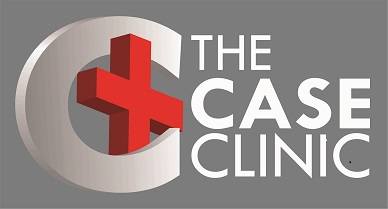
5 People Who Qualify for Medically Supervised Weight Loss
July 30, 2020
4 Medications That Fight Opioid Addiction
October 1, 2020Low metabolism can affect your health. If levels are not right, your body cannot burn the proper calories to sustain functional health
Table of Contents: Not Enough Sleep | Low-Calorie Intake | Cardio Exercise | Fatty Foods | Medications
If you are trying to lose weight but finding it hard, it must be related to your metabolism. To successfully lose weight and then also maintain it, you need to understand how your metabolism works. You might know someone who eats everything, any time of the day and does not gain weight, while you gain weight even when you are trying to lose it. If you try to follow their footsteps, it will be disastrous for you.

The one thing that is different between you two is the metabolism. This is the process in which the body burns food and generates energy to perform your daily activities. If you are exercising, eating healthy, and maintaining a balanced lifestyle and still struggling with weight, it might be possible that you have a low metabolic rate. The Case Clinic will help you understand your metabolism, boost metabolism, burn fat, and guide you in regulating your metabolic rate.
Below is a list of 5 reasons that can be a trigger behind a low metabolic rate. With a scheduled routine and proper diet, this condition can be avoided.
1. Not Enough Sleep
We have all heard the phrase “early to bed and early to rise; makes a man healthy, wealthy and wise”. With time, we are grasping the true meaning of it. There has been ample research to support the claim that when you get enough sleep, you have a good metabolic rate(1). When you do not get enough sleep, the hormones in the body do not work as they should.
It can cause your body to have difficulty breaking down carbohydrates; this will result in increased sugar levels in the body.
The increased insulin levels signal the body to store the sugars, which results in obesity. Hence not getting enough sleep is making your body disrupt its usual functions. The sleep time is required for the body to rewind and rejuvenate.
2. Low Calorie Intake
Starving and making yourself survive without food for long is not helping you lose weight. Rather, it is slowing down your metabolic rate. A low-calorie diet in some people can be effective, but, in some people, it will not work at all(2). This all depends on your metabolic rate.
Hormone leptin sends the signal to the brain when to stop eating, but a low-calorie diet will affect this hormone.
This means that the brain will not get the signal to stop eating, resulting in increased weight. To boost metabolism, you need to take a proper intake of calories.
3. Cardio Exercise
Sweating it out is not just enough to lose weight; it important that you know what works for your body type. For some people, cardio works wonders(3), but for people with low metabolism, strength training is the right choice. Strength training will develop muscles, and developing muscles will burn fats to meet the energy requirement.
Resistance training for at least 3 days a week will ensure that the metabolism is triggered, and more energy is produced in the body.
4. Fatty Foods
Consuming fatty foods slows down the metabolic process. This comes as no surprise that fats can accumulate within the body and are directly responsible for obesity. Many people we see eat burgers and greasy fries but remain in shape(4). This is because they have a good metabolic rate, while for others, burgers are the biggest enemy.
When you eat fatty foods, the body naturally stores some of the fat for future use. To boost metabolism and burn fat, it is important to introduce lean meats in your diet. Fish, nondairy products, and nuts are some of the best options to include in your diet. These will ensure that you get your daily calorie count but also stay healthy.
5. Medications
Certain medications harm the metabolic rate. Antidepressants, diabetes drugs, opioids, and steroids are some common drugs that will add those extra pounds(5). They do not directly affect the fat accumulation in the body but significantly lower the metabolic rate of the body.
If you think your medication is causing weight increase, consult your doctor straight away. They might be able to prescribe you another medicine. It is important to monitor your weight, especially if you are consuming steroids since they significantly affect the metabolic rate.
It is important to understand your own body and your metabolic rate to know what works for you and what does not. The Case Clinic helps patients to burn fat without going on rigorous diets and compromising on mental sanity. If you are still unsure about how your metabolic process works, it is always a good idea to get in touch with our professionals. They will help you in understanding what food groups are right for you and what triggers your metabolism.
References:
- The Sleeping Beauty: How Reproductive Diapause Affects Hormone Signaling, Metabolism, Immune Response and Somatic Maintenance in Drosophila melanogaster – PLOS One
- Time-course changes in macronutrient metabolism induced by a nutritionally balanced low-calorie diet in obese women – International Journal of Food Sciences and Nutrition
- Energy metabolism in relation to skeletal muscle fibre properties during treadmill exercise – BEVA
- Omega-3 Fatty Acids in Metabolism, Health, and Nutrition and for Modified Animal Product Foods – Science Direct
- Opioids, feeding, and Anorexias – Europe PMC

